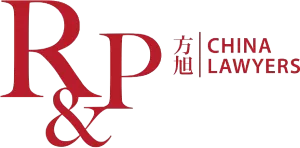- with readers working within the Metals & Mining, Oil & Gas and Retail & Leisure industries
- within Media, Telecoms, IT, Entertainment, Technology and Employment and HR topic(s)
- with Finance and Tax Executives
Special sales promotions for events such as "6.18" and "Double Eleven" have shown to be very successful at encouraging consumption on e-commerce platforms, and so it is not surprising that sales promotions have become an important means for international and domestic brands to expand sales in the Chinese market. To better regulate these promotions for the protection of consumers, the State Administration for Market Regulation (SAMR) recently released the Interim Regulations Regarding Promotional Behavior (Interim Regulations).
The Interim Regulations were issued on 5 November 2020 and took effect on 1 December 2020; concurrently the Provisions on Prohibition of Unfair Competition in Rewarded Sales Activities (Prohibition Provisions) were repealed.
The Interim Regulations mainly involve aspects of unfair competition, pricing and consumer rights. Building on provisions of the PRC Unfair Competition Law, the PRC Pricing Law and the PRC Law on the Protection of Consumer Rights, they further emphasize that companies should not use false commercial information, fictitious transaction, or evaluations to make false or misleading publicity when carrying out promotional activities. New rules are introduced on promotional behavior, including a general definition of "promotional behavior" and of price benchmarks in price promotion activities. Additionally, requirements for prize-giving sales are further refined.
The rules introduce new requirements on both e-commerce platforms and on brands selling online, i.e. operators, which now have an obligation to self-examine their sales and promotion behavior. Below we summarize some of the key points for brands that sell products online through promotional activities.
- Defining Promotional Activities
Brands and other operators will need to determine which of their business activities are regarded as "promotional behavior" covered by the new rules. This includes business activities such as prize-giving sales, price promotions, and concepts with an expanded scope. For example:
- (Article 12) "In order to promote to mobile clients, attract customers, increase visibility, obtain traffic, increase click-through rates, etc., operators provide items, bonuses or other benefits incidentally [...]." This is regarded as prize-giving sales behavior, which means that new promotion models via Weibo, public account forwarding, comment lottery draws, mobile client new user discounts, and group discounts will all be subject to supervision by SAMR and its local counterparts.
- (Article 2) Brands should be supervised if they "carry out promotion by means of sales with prizes, prices and free trials for the purpose of selling commodities, providing services or gaining competitive advantages".
- Strict Disclosure Requirements
Operators have strict disclosure obligations in their promotional behaviors, which the Interim Regulations repeatedly emphasize. For example, operators are required to "show activity information clearly and conspicuously."
On prize-giving sales, the Interim Regulations go further than the Prohibition Provisions that previously applied: disclosure to "buyers" is no longer sufficient. Now, the standard is "clear announcement", and more than a dozen items of information are listed. On price promotions for example, operators must clearly indicate the conditions and period of the price promotion, and the rules introduce very specific requirements on indicating the price benchmark of discount or reduced price. The obligation to disclose price promotion benchmarks means that behaviors such as "increasing prices before discount" and "announcing price reductions but actually increasing prices" are prohibited. Also, a new product should not use the concept of "original price" as it never sold before.
- Compliance on Prizes and Gifts
Prizes or gifts offered in promotional activities must comply with relevant national regulations. Article 10 of the Interim Regulations puts forward clear requirements that these prizes or gifts cannot be counterfeit or substandard products, or products that the State has banned. Companies are mandated to examine themselves and in advance whether prizes or gifts meet the requirements, including compliance with the PRC Product Quality Law, the PRC Food Safety Law, Administrative Provisions on Medicine Circulation Supervision etc.
- Internal Management Requirements
The rules introduce higher requirements on an operator's internal management: Article 19 requires that an operator carrying out sales promotion activities with prizes should set up a file that truthfully, accurately and completely records the awarding rules, public information, award acceptance results, prize-winners and other contents. An operator should further maintain this file for at least two years, and accept supervision and inspection according to law.
At the same time, Article 9 emphasizes that companies shall not bribe other parties (through financial or other means) in the name of a promotion activity to seek trading opportunities or competitive advantages. In consequence, companies should strengthen their anti-corruption compliance systems and internal personnel management.
- Legal Liabilities
The Interim Regulations set penalties based on relevant laws such as the PRC Unfair Competition Law and the PRC Pricing Law, but also introduce some new consequences for non-compliance. Some examples:
- If an operator's promotional activities are deemed to constitute false information, such as failing to accurately indicate the activity information by using false commercial information, fictitious transactions or evaluations to make false or misleading publicity, the local AMR may impose a fine of between CNY 200,000 and 1 million; while in serious cases the fine can increase to CNY 2 million and the operator's business license may be revoked.
- If an operator fails to fulfill its disclosure obligations in prize-giving sales, this could incur a fine of between CNY 50,000 and 500,000.
- If an operator fails to maintain a complete file for prize-giving sales, then it can be fined up to CNY 10,000 per violation.
- Commercial bribery in the name of promotion activities can be subjected to a fine of between CNY 100,000 and CNY 3 million, depending on the seriousness of the case.
Conclusions
The promulgation of the Interim Regulations greatly strengthens the regulation and supervision of promotional activities of brands and other operators to expand sales, especially online. Companies urgently need to improve their sales compliance accordingly. In terms of external business activities, key follow-ups are to determine which of an operator's behaviors will be recognized as "promotional activities", and then review these behaviors to ensure compliance, including in relation to the law's disclosure requirements. Operators must also spend more time ensuring full internal compliance including the development and maintenance of files for each activity, as well as proper internal systems and trainings to ensure that employees are familiar with the rules.
The content of this article is intended to provide a general guide to the subject matter. Specialist advice should be sought about your specific circumstances.
[View Source]



